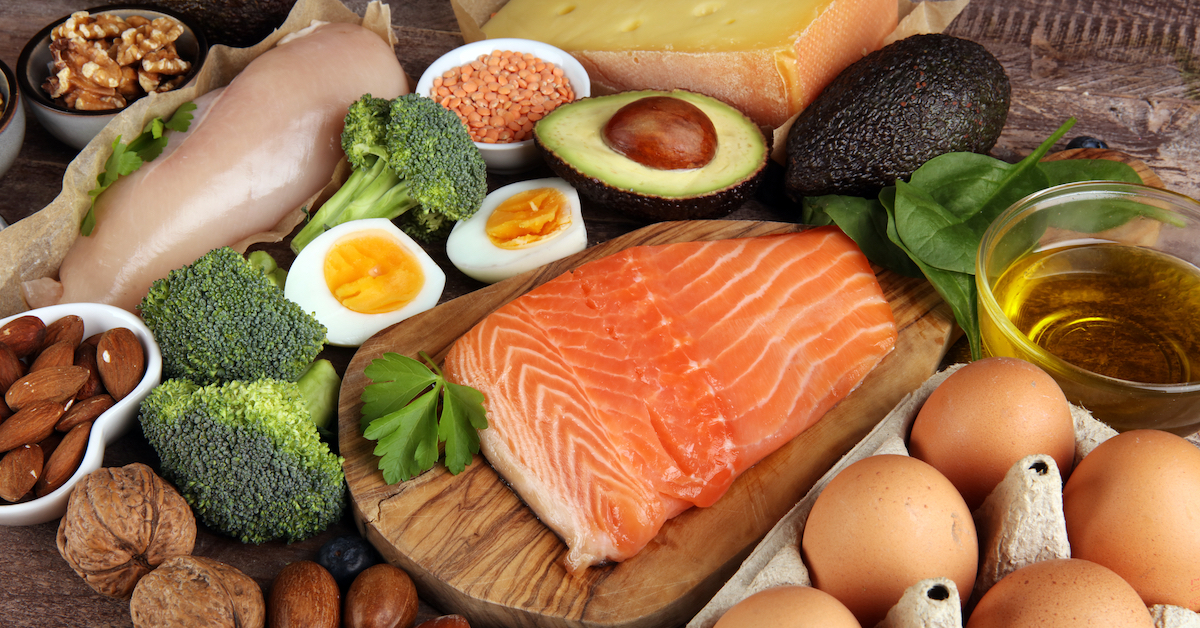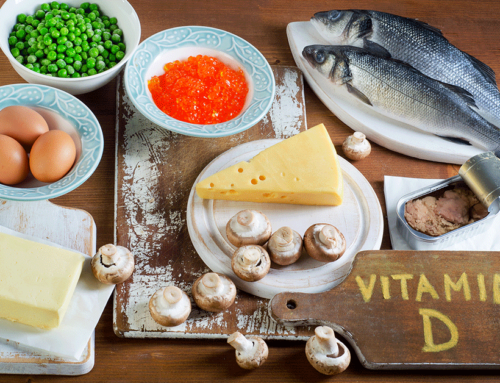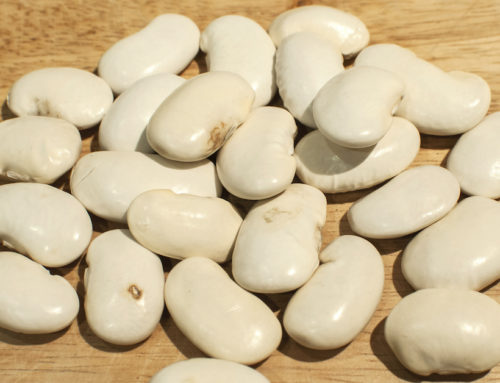One of the best ways to deal with Alzheimer’s disease?
Make sure you never get it in the first place. And one of the more effective methods for lowering your risk of Alzheimer’s disease is to build up your brain health with the right foods.
According to researchers at the Rush University Medical Center in Chicago, they’ve devised a diet that succeeds in attaining this goal. In fact, research shows this diet can lower your chances of Alzheimer’s disease by more than 50 percent. Best of all, it’s an eating plan that’s fairly simple to follow.
The Rush researchers have christened their brain-boosting diet the MIND diet, which stands for the Mediterranean-DASH Intervention for Neurodegenerative Delay (MIND) diet.
The long name derives from the fact that this eating plan combines elements of the traditional Mediterranean diet, which has been shown to have heart health and memory benefits, with the DASH diet – Dietary Approaches to Stop Hypertension – which was formulated in a program sponsored by the National Institutes of Health to help people lower their blood pressure.
Their research shows the MIND diet can help you protect your brain against memory loss.
50 Percent Lower Risk of Alzheimer’s Disease
A study at Rush found that people who stuck very closely to the MIND diet experienced the biggest anti-Alzheimer’s benefits, reducing their risk of the disease by 53 percent. But even those who strayed from the diet every now and then still lowered their Alzheimer’s risk by 35 percent.1
Other researchers investigating the MIND diet found similar results. A review study in the Netherlands shows that the diet is “associated with less cognitive decline and a lower risk of Alzheimer’s disease.”2
What’s more, following the MIND diet can slow overall brain aging by 7.5 years, according to a review published by the Mayo Clinic.3
But that’s only the beginning of how the MIND diet can help your body…
Delays the Onset of Parkinson’s Disease
Research in Canada indicates that while the diet doesn’t stop people from getting Parkinson’s disease, it can delay the onset of symptoms.
For example, when women follow the diet closely (and women seemed able to stick to the diet more rigorously than men), it delayed the onset of the disease by an incredible 17.4 years when compared to women who didn’t follow the diet. Meanwhile, men who stuck most closely to the diet delayed the beginnings of Parkinson’s by 7.4 years.4
In research terms, this means that in a group of people following the diet, there will be the same number of Parkinson’s cases in those following the MIND diet as those eating normally, but the MIND dieters won’t get the disease until much later in life.
Lowers Risk of Cancer, Migraines and More
A study in the Middle East found that women who followed the MIND diet closely enjoyed a 60 percent lower risk of breast cancer.5
While another investigation of migraine sufferers discovered that following the MIND diet significantly reduced the frequency of the headaches, shortened their duration and lessened their severity.6
Of course, there have already been numerous studies on how eating a Mediterranean diet can stamp out inflammation to improve heart and memory health, so it’s highly likely that there are other significant health benefits to the MIND diet that have yet to be clinically documented.
How to Follow the MIND Diet
The rules of the MIND diet mandate eating mainly ten types of food, while omitting five other kinds of food.
The ten types to eat lots of include: green leafy vegetables and other vegetables, nuts, berries, beans, whole grains, fish, poultry, olive oil and wine.
For example, the Rush researchers say that you should have at least three servings of whole grains daily along with a salad and another vegetable. Snacks on most days should include nuts. Eat beans every other day or so. Consume poultry and berries at least twice a week and fish at least once a week. I’ll add that it’s a good idea to choose organic foods when possible to cut down on exposure to chemical pesticides and herbicides.
Of course, this isn’t the first time these foods have been praised for improving brain health.
Researchers found that green leafy vegetables like kale, collards, spinach or lettuce can lower the risk of dementia and cognitive decline. For one thing, greens are packed with nutrients linked to better brain health such as folate, vitamin E, carotenoids and flavonoids. And one serving a day is clinically proven to slow brain aging.7
Same thing goes for berries. In a 20-year study of over 16,000 older adults, those who ate the most blueberries and strawberries had the slowest rates of cognitive decline. Researchers credit the high levels of flavonoids in berries with the benefit.8
As for beans and legumes, these are also rich in B vitamins which are critical for brain health. In a separate study analyzing the diets of older adults, those who ate the fewest legumes experienced greater cognitive decline than those who ate the most.9
Now, as for the five “unhealthy” foods that are not recommended in the MIND diet, these include: red meat, butter and stick margarine, cheese, pastries and sweets, and fried or fast food. Personally, I don’t think red meat has to be omitted completely– it’s processed meats, not all red meat, that can be a problem. And I very strongly recommend avoiding meat that was raised with hormones or antibiotics.
The Rush researchers recommend limiting butter to less than a tablespoon a day and avoiding cheese, fried food and fast food entirely. They allow one glass of wine each day. If you’re not a wine drinker, the MIND diet certainly isn’t a reason to start, but if you’re already enjoying other alcoholic beverages you might consider making the switch to wine instead.
Don’t Forget Lifestyle
Not surprisingly, research shows that eating these foods while also following a healthy lifestyle can increase your odds of keeping your memory and focus even sharper as you age.10
This healthy lifestyle is similar to the one we write about in this newsletter regularly and includes not smoking, getting between two and three hours of moderate to vigorous exercise weekly and engaging in mind-stimulating activities such as music, theater, dance, etc.11 I would also add the critical importance of managing stress and maintaining healthy sleep habits.
- https://www.ncbi.nlm.nih.gov/pmc/articles/PMC4532650/
- https://www.ncbi.nlm.nih.gov/pmc/articles/PMC6855954/
- https://www.mayoclinic.org/healthy-lifestyle/nutrition-and-healthy-eating/in-depth/improve-
brain-health-with-the-mind-diet/art-20454746 - https://pubmed.ncbi.nlm.nih.gov/33404118/
- https://www.sciencedirect.com/science/article/abs/pii/S1526820920302536
- https://www.ncbi.nlm.nih.gov/pmc/articles/PMC7364542/
- https://www.mayoclinic.org/healthy-lifestyle/nutrition-and-healthy-eating/in-depth/improve-
brain-health-with-the-mind-diet/art-20454746 - https://www.mayoclinic.org/healthy-lifestyle/nutrition-and-healthy-eating/in-depth/improve-
brain-health-with-the-mind-diet/art-20454746 - https://www.mayoclinic.org/healthy-lifestyle/nutrition-and-healthy-eating/in-depth/improve-
brain-health-with-the-mind-diet/art-20454746 - https://pubmed.ncbi.nlm.nih.gov/32554763/
- https://www.nia.nih.gov/health/cognitive-health-and-older-adults#mind







